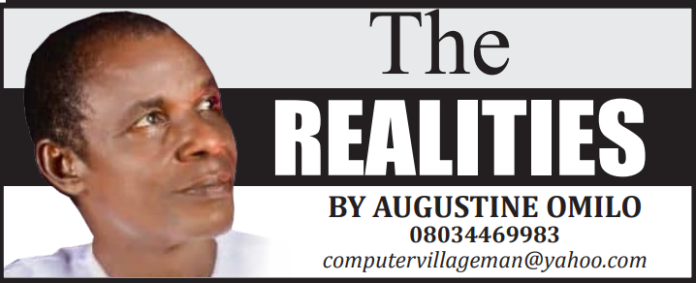By: Augustine Omilo
Going by the constitution of the federal republic of Nigeria, all the 774 local government areas in the country are expected to elect new political office holders (chairmen and councilors) at least once before the 29th of May, 2027. The law provides for a three-year tenor for this category of politicians. And without the governor of a state dissolving the local government councils with a view to putting a temporary structure in place, elections are supposed to be held under the supervision of exiting local government chairmen but organized by the different states’ independent electoral commissions.
Barring any unforeseen circumstances that may necessitate postponement by Delta State independent Electoral Commission, DESIEC, the election to usher in new chairmen and councilors for Delta state’s local councils is scheduled to hold on the 13thday of July, 2024. Many political parties, including the People’s Democratic Party (PDP), the All Progressives Congress (APC), the Labour party (LP) are already campaigning for their candidates in various ways.
With few days remaining for the conclusion of campaigns and commencement of the elections proper, no incidences of chaos or violence have so far been recorded in the state. This is quite unlike what happened in many states during the last general elections organized by the Independent National Electoral Commission, INEC in 2023.
In addition to the death of many citizens during the 2023 electioneering campaigns, properties worth millions of naira were also destroyed. It is worthy to note that many youths of the country are still suffering from the consequences of electoral misbehavior that arose from the general polls of last year.
An opportunity therefore beckons on Nigerians at the grass root to right the wrongs of previous elections in their different domains at different levels. This is important because, once the grassroots’ voters and election organisers begin to do things right, the lager society will have no other options than to follow suit.
Those participating in the election as candidates must understand that they are more like the third eleven of a football team that graduate eventually to the second eleven and to the first with time. In other words, their conducts before, during and after local government elections will continue to go long ways in determining their future democratic progress or otherwise. Astute politicians like Dr. GoodLuck Jonathan, Dr. ifeanyi Arthur Okowa, Chief Nyesom Wike, to mention but a few started their journeys to political stardom from the local government levels.
In Delta state, there is always a saying that; “Delta no dey carry last”. This statement has over time been proven to be true in all circumstances involving the oil rich area of Nigeria. The Delta State Independent Electoral Commission (DESIEC), the state’s political actors as well as the voting public must therefore assume positive responsibility of ensuring credible polls come 13th of July, 2024.
Vices such as ballot snatching, intimidation of voters, vote buying, scuffles among the youths and killing of fellow citizens during this period must be put into checks by security agencies, namely the Nigeria police, community vigilantes and other volunteer forces.
For positive outcomes after the elections to truly manifest, the need for intensified efforts aimed at educating parents, children, and adults in the different communities by both DESIEC and concerned citizens cannot be overemphasized. Premium must be placed on the fact that elections are not do-or-die affairs. Successful elections conducted by DESIEC can form a template for further credible elections in the country.
And beyond the conduct of credible local government elections in the Nigeria generally and Delta state in particular, it is high time elected political office holders at the council levels began to function with the zeal of bringing democratic dividends to their people in focus. According to the recently published annual report by the Delta state government on the 2023 Federal Accounts Allocation Committee (FAAC), a total of about N94B was shared to the state’s local governments. The least received by any council was N3.5B while the highest was about N4.8B. These were in addition to the internally generated revenues by the councils and amounts given to them by the Delta state government to augment their wage bills for teachers and other expenses.
Though the monies received may be considered small, considering the prevailing economic realities as a result of the federal government reforms, not many of the grass root government can boast of their judicious use of the funds, especially in the areas road maintenance, environmental cleaning, primary schools’ supervision and public enlightenment.
Therefore, as the campaigns for victories continue, contestants must equally be putting their economic blue prints together in advance. This will definitely help them to hit the grounds running immediately after their victories. Those who fail to win should be prepared to offer useful criticisms based on their own blue prints in the spirit of sportsmanship, patriotism and service to mankind.
Meanwhile, elected local council officials owe Nigerians a duty to stand their grounds in ensuring total compliance to section 7 of the 1999 constitution of Nigeria which guarantees the operation of local governments by democratically elected officials. After all, the president does appoint care taker governors and assembly members under any guise.


